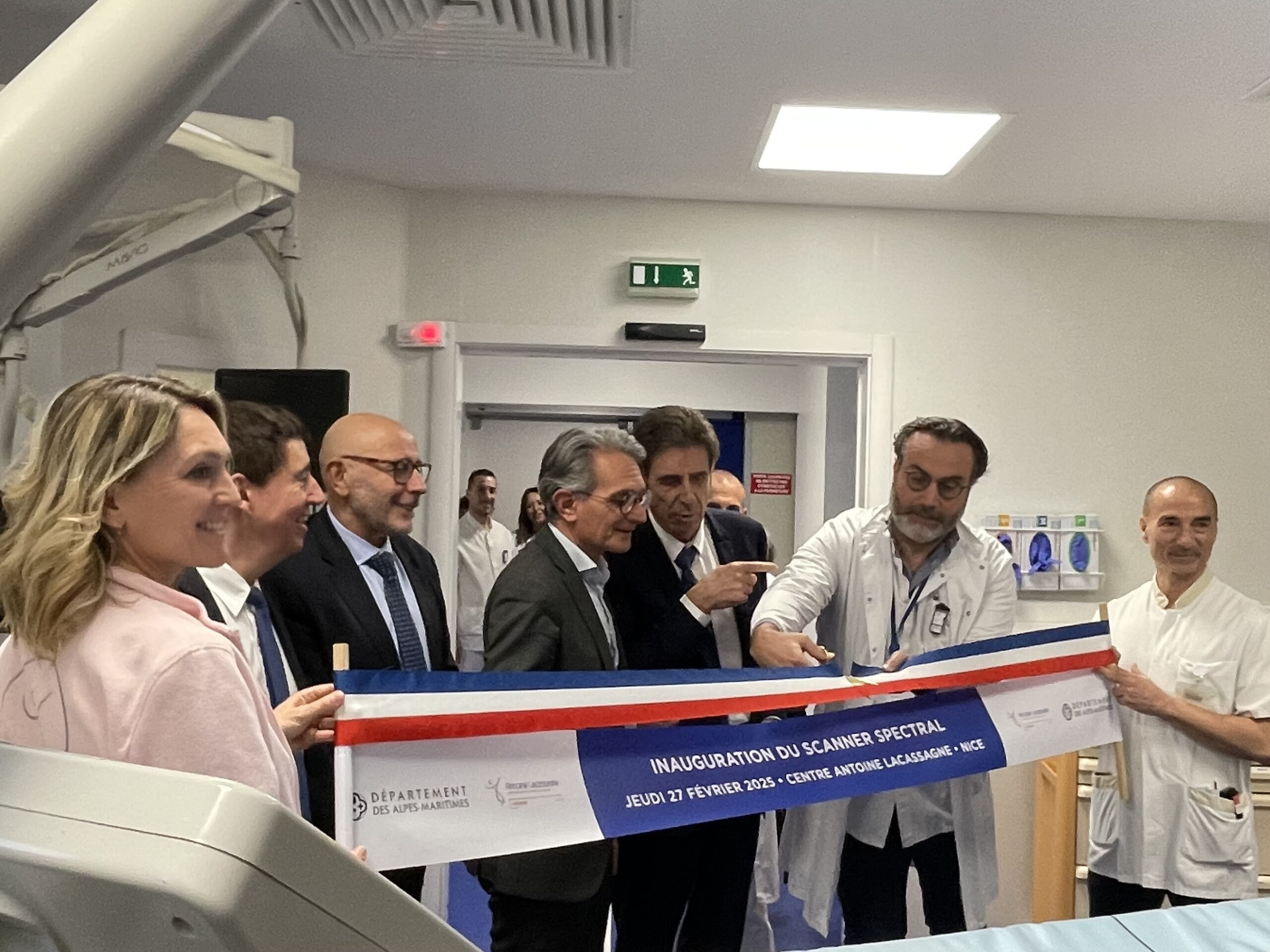
The Antoine Lacassagne Center has reached a new milestone in medical innovation. A state-of-the-art spectral scanner was inaugurated this Thursday in the presence of numerous elected officials and health specialists. This equipment, partially funded by the Alpes-Maritimes Departmental Council, represents a major advancement for the diagnosis and monitoring of cancer patients.
The inauguration brought together several personalities, including Professor Laurent Castillo, a member of the European Parliament, and Charles-Ange Ginésy, president of the Departmental Council. Alongside Dr. Guillaume Gaudin, head of the radiology department, they emphasized the importance of this investment.
“We are proud to be the first institution in the South region to equip ourselves with this technology,” stated the center’s director, Professor Emmanuel Barranger. He pointed out that this purchase is part of an ambitious policy to improve medical equipment, with 60% of investments dedicated to acquiring cutting-edge devices.
A Revolutionary Technology
The Philips Spectral Scanner provides unmatched precision in medical image analysis. Unlike conventional scanners, it uses two energy levels, allowing for more detailed images and better differentiation of tissues. This technology is particularly beneficial in oncology, facilitating the early detection of tumors and the characterization of lesions.
“We have the ability to more precisely identify certain anomalies and reduce diagnostic uncertainties,” explains Dr. Guillaume Gaudin. This is a major advantage to improve patient management and limit unnecessary treatments.
This scanner also offers an ecological and economic advantage: it allows for a 20 to 30% reduction in the use of contrast agents, which are essential for certain exams but often expensive and burdensome for patients.
A Strong Commitment to Public Health
The acquisition of this element was made possible thanks to the financial equipment support from the Departmental Council, which contributed 50%. Since 2006, the institution has invested 7.4 million euros in the establishment, participating in the purchase of innovative equipment such as the Proteus One or the surgical robot.
The Institut Mozart, the center’s flagship project, also benefits from this commitment. This place for supportive care and well-being, intended for patients and their families, has already assisted over 12,000 people. Its expansion into the department’s valleys shows the center’s desire to enhance access to healthcare.
A Promising Future for the Center
The Antoine Lacassagne Center continues its development. In 2025, a new radiotherapy accelerator will complete its technical facilities. The institution is thus positioning itself as a key player in the fight against cancer in France.
“This scanner is a major advancement for our patients. It illustrates our constant commitment to providing the best available technologies,” concludes Dr. Gaudin. With this innovation, the center continues to write its history in the service of health.